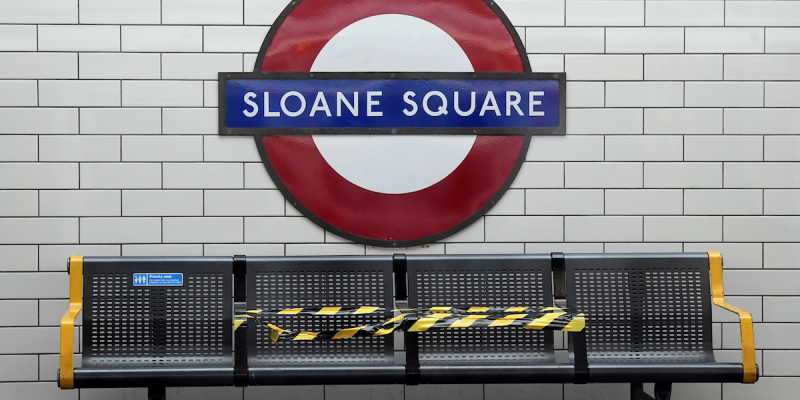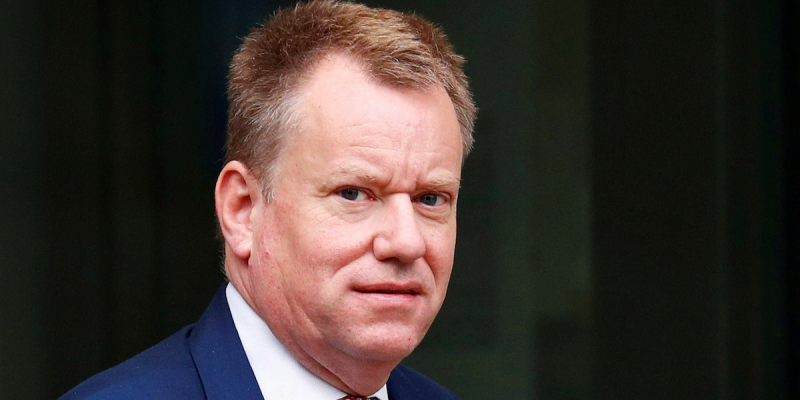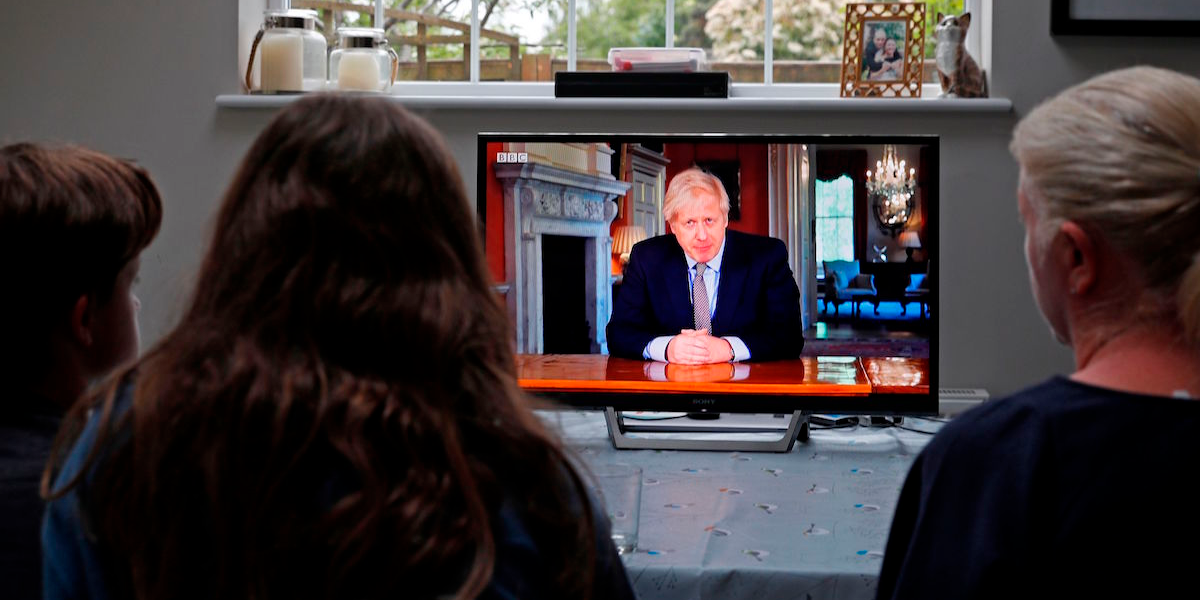- Businesses have been left confused by the UK government’s attempts to loosen the coronavirus lockdown.
- The director of Britain’s biggest business group told Business Insider that the handling of the announcement triggered “confusion” for many businesses.
- Dame Carolyn Fairbairn, director-general of the Confederation of British Industry, said business leaders are still waiting for guidance on how they can safely bring back employees.
- “There has been confusion around that. We have certainly heard that from businesses,” she said.
- Fairbairn said the outbreak is causing many businesses to review whether they need all of their office space, as remote working becomes the norm.
- Visit Business Insider’s homepage for more stories.
Boris Johnson’s announcement of plans to loosen the UK coronavirus lockdown has caused “confusion” for business, the head of Britain’s biggest business group has told Business Insider.
Dame Carolyn Fairbairn, director-general of the Confederation of British Industry, said that business leaders were left uncertain about the new measures, after a series of conflicting messages from Johnson’s government.
Downing Street announced on Sunday that the prime minister was calling for the re-opening of parts of the British economy the following day.
However, the Foreign Secretary contradicted that on Monday, saying that employees from the affected industries should not return to work until Wednesday.
Despite calling for the return of large numbers of workers, guidance on how companies could safely welcome them back will not be published until later on Tuesday.
"I don't think the communication was perfect," Fairbairn told Business Insider.
"Ideally, everybody would have liked to have had the safer working guidance published first, as well as clarity that the encouragement to go back to work didn't start until Wednesday."
She said business leaders had contacted the CBI to express their confusion about the new measures.
"There has been confusion around that. We have certainly heard that from businesses," she said.
A second lockdown would be 'devastating' for business

Fairbairn welcomed the decision to gradually loosen the UK's lockdown measures, warning that acting too quickly risked a spike in infections and a second lockdown which would be even perilous for business than the first.
"A second lockdown would be devastating," she told Business Insider.
"We've spoken to so many businesses who have basically said to us: 'knock me down once and I'll get up again. Knock me down again and I might not get up.'
"There is a sense of businesses in hibernation, doing everything they can to keep their employees on the books, grabbing at every source of possible bank and government support. If they took steps to re-open, bring people out of furlough, and then go into a second really heavy lockdown, that would be a hammer blow for them and the economy."
She added: "This is the beginning of a long, slow, difficult process - but it has to start.
"Yes, things probably could have been done in a slightly clearer way. But the message should not be lost. This was an important change in tone and really necessary for helping our members create COVID-secure working environments."
Coronavirus will cause businesses to reduce office space

Fairbairn said she expected the coronavirus outbreak to have long-lasting impact on UK working culture, with CBI members already looking at scaling back their office space in a shift towards remote working.
"There are a lot of businesses out there who are really surprised by how well working from home has gone," she said.
"For many people it has been valued, saved commuting time, and created a flexibility which people have been dreaming of in terms of managing their quality of life."
She added that long-term social distancing measures would probably force offices to be at 10-15% capacity for a several months, and would prompt bosses to look away from office space and instead invest in home working facilities for their employees.
"I think there are going to be a number of businesses who really rethink their use of office space. I've had many conversations with large businesses who are already reviewing their property strategy."
Fairbairn called on Johnson's government to extend its furlough scheme until the autumn for sections of the hospitality sector, warning that many pubs and restaurants will not be able to re-open for a number of months.
"We have been arguing for, and discussing with the Treasury, an ongoing support mechanism and continuation of some form of the furlough scheme, to support those businesses that really cannot open," she told Business Insider.
"We have been encouraged so far that they have listened. We know that they are actively considering what the new wave of furlough of support can be for those businesses that cannot open."
Chancellor Rishi Sunak is expected to announce his long-term plan for the furlough scheme on Tuesday.
The CBI does not support extending the Brexit transition - yet

Despite the challenges facing businesses nationwide - particularly those that import and rely on supply chains - Fairbairn said the CBI did not yet support extending the Brexit transition period beyond December.
Other major business groups have called for the UK government to extend the 11-month period.
The Freight Transport Association, which represents the logistics industry, in March warned that hauliers could not focus on preparing for a new trading relationship with the EU while responding to the impact of the coronavirus.
However, Fairbairn said "at the moment, there is an argument to say just get on with it."
She added: "Unless there is a materially better outcome for business by delaying, then we'd really urge the government to get on with negotiating with the EU a strong, powerful deal with minimum border frictions."
However, she warned that the June deadline for UK and European Union negotiators taking stock of progress in talks was "coming up really quickly," and that the CBI would decide then whether to change its position.
Johnson's government is insistent that it will not extend the transition period, claiming that doing so would prolong uncertainty for businesses.
